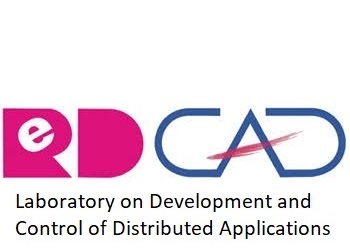- Conference Details
- Previous Editions
The workshop co-located with ICSOC 2022 addresses the adaptation and reconfiguration issues of the Service-oriented and cloud applications and architectures.
The concept of adaptive and reconfigurable SOA has been introduced in order to describe architectures, which exhibit functional and non-functional properties. An adaptive and reconfigurable SOA can repair itself if any execution problems occur, in order to successfully complete its own execution, while respecting functional and NF agreements. In the design of an adaptive and reconfigurable software system, several aspects have to be considered. For instance, the system should be able to predict or to detect degradations and failures as soon as possible and to enact suitable recovery actions. Moreover, different NF requirements service levels might be considered in order to complete the execution in case of failure. Contributions are devoted to the design and the implementation of adaptive and reconfigurable service oriented and cloud applications and architectures.
TopicsContributions are devoted to adaptability and reconfiguration management in service-oriented and cloud application. Specifically, the relevant topics include, but are not limited to:
- Distributed and centralized solutions for the diagnosis and repair of service-oriented and cloud applications
- Design for the diagnosability and repairability
- Monitoring simple and composite architectures, components and services
- Semantic (or analytic) architectural and behavioral models for monitoring of software systems
- Dynamic reconfiguration of of service-oriented and cloud applications
- Planning and decision making
- Technologies for ensuring autonomic properties
- Predictive management of adaptability
- Management of autonomic properties
- Experiences in practical adaptive and reconfigurable service-oriented and cloud applications
- Tools and prototypes for managing adaptability
- Paper submission:
September 25, 2022October 03, 2022 - Notification to authors: October 23, 2022
- Camera-ready papers due: October 30, 2022
- Early registration due: October 30, 2022
- Workshop: November 29, 2022
If any problem arises when submitting your paper, please contact: bouassida@redcad.org
Each paper will be reviewed by at least three members of the international program committee for ensuring high quality.
Paper acceptance will be based on originality, significance, technical soundness, and clarity of presentation. All accepted papers will be included in the workshop proceedings published as part of the Lecture Notes in Computer Science (LNCS) series of Springer.
At least one author of an accepted paper must register and participate in the workshop. Registration is subject to the terms, conditions and procedure of the main ICSOC conference to be found on their website: http://www.icsoc.org/
| Ismael Bouassida Rodriguez | ReDCAD, University of Sfax, Tunisia |
| Nesrine Khabou | ReDCAD, University of Sfax, Tunisia |
| Khalil Drira | LAAS-CNRS, Univ. Toulouse, France |
Web and publicity chair
| Imen Abdennadher | ReDCAD, University of Sfax, Tunisia |
Program Committee
| Wafa Gabsi | ReDCAD Laboratory, University of Sfax |
| Chouki Tibermacine | University of Montpellier |
| Cinzia Cappiello | Politecnico di Milano |
| Mohad-Said Hacid | Univ Lyon 1 |
| Philippe Roose | LIUPPA/UPPA |
| Marcos Da Silveira | LIST- Luxembourg Institute of Science and Technology |
| Carlos E. Cuesta | Rey Juan Carlos University |
| Volker Gruhn | Universitat Duisburg-Essen |
| Djamal Benslimane | Lyon 1 University |
| Abdulatif Alabdulatif | Qassim university |
| Sami Yangui | INSA Toulouse, LAAS-CNRS and Univ Toulouse |
| Takoua Abdellatif | University of Sousse |
| Henry Muccini | University of L'Aquila |
| Mohamed Mosbah | LaBRI - University of Bordeaux |
| Uwe Zdun | University of Vienna |
| Fairouz Fakhfakh | ReDCAD Laboratory, University of Sfax |
| Mouna Rekik | University of Sousse |
| Claudia Raibulet | University of Milano-Bicocca |
| Mehmet Aksit | University of Twente |
| Karim Guennoun | Hassania School of Public Works |
| Federico Bergenti | Universita degli Studi di Parma |
| Dimka Karastoyanova | University of Groningen |
| Grzegorz Kolaczek | Wroclaw University of Technology |
| Francisco Moo-Mena | FMAT-UADY |
| Rodrigo Bonacin | CTI Renato Archer and FACCAMP |
| Miriam Capretz | Western University |
| Leila Hadded | University of Tunis El Manar |
| Mehdi Khouja | University of Gabes |
| Imen Abdennadher | ReDCAD Laboratory, University of Sfax |



